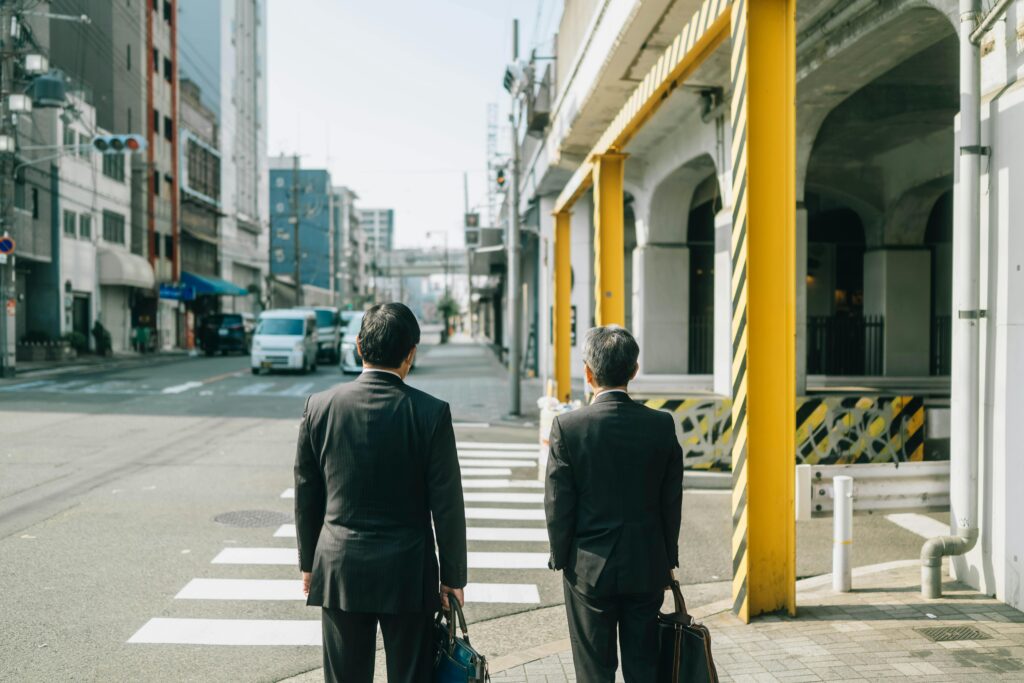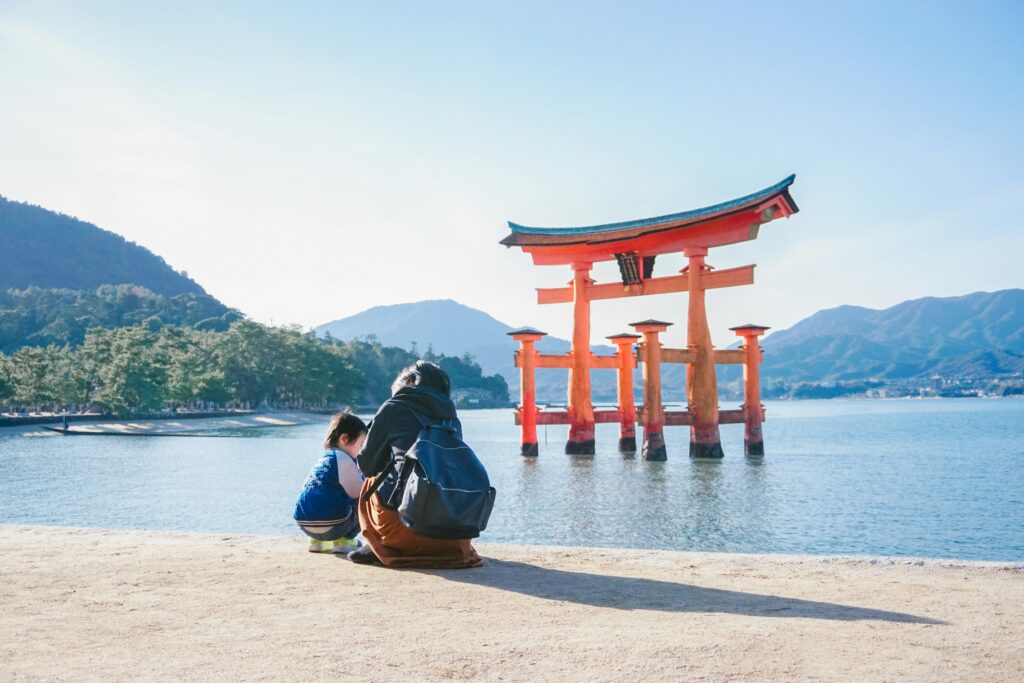When you move to a different country, especially if the language is different, you can expect to learn a lot (including, hopefully, the language). In Japan, every day is a school day: there is always something new to find out about the country and its people, whether it’s in daily life or at work. If you’ll indulge me, let me take you through a few.
Lessons learned living in Japan
Experience is, and always has been, the best teacher. There is no book that can teach you how to love, nor any class that can tell you how to laugh. In the same way, there is no way for me to adequately express the lessons that I have learned in Japan. That said, here is an outline of a few of the most important things I have learned about living here.

The kindness of the Japanese people
One of the first things that anyone who wants to come to Japan should know—and that anyone who lives here will know—is that, despite stereotypes in films and television of superficial friendliness with a degree of distance, the vast majority of Japanese people are actively friendly, and interested in the people around them.
I live in Tokyo, which has a reputation in Japan akin to that of London in the UK or New York in the US: a place where the people are cold. Nevertheless, I have consistently found that people are open, forthright, and neighborly.
From the day that I moved into my apartment, my landlady has been a steadfast ally and friend—not only gifting me Japanese sweets on moving in, but also lending me a torch before a typhoon, just in case the power went out. She also went shopping for me when I sustained a broken ankle and couldn’t go myself.
Perhaps the best place to discover Japanese people’s friendliness, however, is at your local izakaya: a Japanese pub. These drinking holes tend to have few chairs or tables (if any), but they are welcoming to strangers. In my experience, anyone who notices an international will, if the mood strikes them (the likelihood of which increases with each sip), ask you where you’re from and what you like.
Uncompromising on quality
This is one area that even people who are somewhat familiar with Japan are surprised by when they first arrive. Japan is obsessed with quality: no matter the area, Japanese people are insistent that whatever they experience must have a degree of effort in it.
This is not to say that everything is excellent: a ¥400 spaghetti carbonara from FamilyMart is not going to be the best pasta you’ve ever had, but it will be a darn sight better than anything else you’d get in its equivalent in the West.
This includes service, of course. The word omotenashi doesn’t have an exact translation, but it is essentially the feeling, for the customer, of seamless service. When omotenashi is on point, whatever you need will be in front of you the moment before you realize you wanted it. This is best exemplified in hotels that serve kaiseki (multiple-course Japanese cuisine) meals.
An appreciation of transience
I bet if you think about it, you have a favorite phrase, proverb, or saying. My favorite in Japanese is “nana korobi, ya oki”: “fall down seven times, get up eight.”
But for many Japanese people, their favorite is “ichigo ichi e”. For beginner Japanese scholars, you may think this is about strawberries: actually, it means, “one time, one meeting.” However, it is perhaps best understood as believing that everything is a once-in-a-lifetime chance: even if you meet the same friend tomorrow, you will never meet them here, on this day, at this time, ever again, and it must be cherished.
This is why hanami, or the practice of observing cherry blossoms (which bloom for a fleeting week), is so popular in Japan. It is not just about the flowers themselves: they are all the more beautiful because their beauty is fleeting. Just as Medusa (before being cursed) was the most beautiful of all the gorgons because she was the only one who was mortal, it is the fact that we cannot capture flowers, moments, and feelings that makes them so much more valuable.
Lessons from working in Japan
Working in Japan is, of course, a part of living in Japan. But there are some things that you can learn in the workplace that you can’t learn anywhere else when it comes to Japanese life. Here are a couple of things I have learned in my life in the classroom, the office, and as a freelancer.

Timeliness
This is everything in the Japanese workplace. While the notion that a delayed train, an injury, or similar is no excuse is untrue, there is an expectation in Japan that if you’re due to do something or be somewhere at a certain time, you need to have done it or be there.
Being early is, of course, ideal, but lateness without a solid excuse is not accepted, and can lead one to being seen as flaky. Incidentally, “my train was late,” in the absence of a larger reason (i.e. one that would appear on a GPS app), is not acceptable: if you are cutting it close enough that a two-minute delay will make you late, you’re not coming in early enough.
The same is true of leaving work. Unless you have an exceptional reason, leaving even five minutes early is not the done thing. Traditionally, one should not leave until one’s superior leaves—which in practice means waiting until the boss leaves.
That said, these days, many places are more understanding that just sitting there pretending to work isn’t productive, so regular home time is okay. But no leaving early unless it’s life or death: leaving your date waiting is NOT an excuse!
Understanding of sickness/injury
This leads to one of the big dichotomies between Japanese and Western companies, in my experience. While in the West, people understand if you want to cut out early sometimes (maybe it’s your anniversary, maybe the big match is on, maybe you’ve just done a lot of work this week), as mentioned, this is unacceptable in Japan.
On the flip side, sickness or (to a lesser extent) injury is considered to be an excuse in Western businesses (“You have a cold? You can hardly walk? So what?”). In Japan, it is very much considered a part of life that you can’t make it. Extended absences will still require a sick note, of course, but in my experience, “I think I have heat stroke, I need to rest” is met with “take care,” not “I’ll see you in 30 minutes then.”
Enthusiasm for team-building
Team-building. Dreaded by most in the West as that most terrible of fates: mandatory fun. Often strange exercises that you thought you’d left behind at summer camp many moons ago, these “enjoyable” tasks can be emotionally draining (the exact opposite of their goal). In Japan, however, there is a simple workaround: the nomikai.
Literally “drinking meeting,” it’s exactly what it sounds like: everyone gets together and drinks alcohol. Though it was previously almost mandatory to get a little bit lit, these days people who don’t like alcohol don’t usually get teased for their preference.
That said, if you do drink, it can be a great leveler: pouring your boss a drink while they talk about their early days in the company, then them pouring one back for you while you talk about the fun you’ve had lately, and most importantly, a chance for the veneer of the company to break for a second as everyone agrees, “This can be tough work sometimes, right?”
These are just a few of the things I’ve learned in my time in Japan. There are many more I haven’t mentioned, even more I can’t recall, and still more you will learn that I never did, whether you’re here for a little while or a lifetime.

If you’d like to know more, here are a couple of articles that may interest you. With that, let me leave you to my final thought: welcome to Japan!
